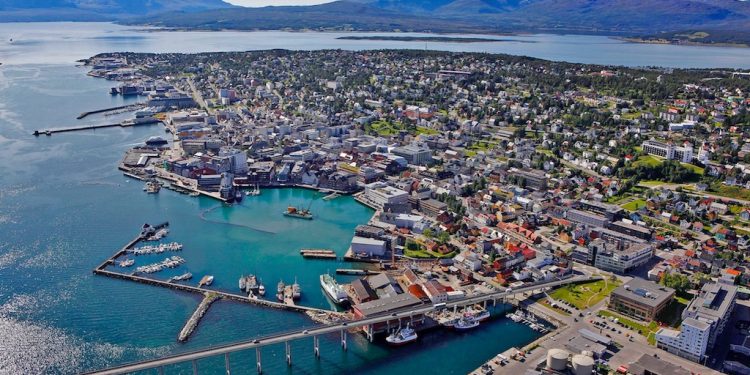The Norwegian authorities have stipulated that Russian fishing vessels calling in Norway will have access to only three ports, where checks will be carried out.
The new regulations will come into force in the near future, and Russian vessels that are not subject to embargo restrictions can call only in Tromsø, Kirkenes or Båtsfjord.
‘The serious recent developments, with Russia’s unacceptable annexation of Ukraine, the attacks on gas pipelines in the Baltic and increased drone activity, means that the government has further tightened preparedness’ stated Norwegian Foreign Minister Anniken Huitfeldt.

‘We have closely monitored Russian activity in Norwegian waters and in Norwegian ports to avoid Norway becoming a transit country for transporting goods illegally to Russia. We now have information which indicates that there is a need to increase the control of Russian fishing vessels.’
Norway manages manages fish stocks jointly with Russia, and it is seen as particularly important that the cod stock is managed sustainably.
Consequently, an exception has been made to the port ban for Russian fishing vessels, but now the government is tightening the regulations to limit Russian vessels to the ports of Tromsø, Kirkenes and Båtsfjord, with customs checks taking place at these ports.
‘The Ministry of Finance has requested the Customs Agency intensifies controls on Russian fishing vessels. This means a clear strengthening of control in the area,’ said Finance Minister Trygve Slagsvold Vedum, commenting that customs officers will work closely with the police and other authorities.
‘With the borders with Europe increasingly closed, this makes us vulnerable. This increases the risk of illegal activity through Norway. We follow developments closely and are ready to take further measures if necessary,’ Anniken Huitfeldt said.
Tromsø, Båtsfjord and Kirkenes are the ports in Norway that see the largest frequency of calls by Russian fishing vessels.
‘Norway has had fisheries co-operation with Russia for almost fifty years, including during the Cold War. We have an important responsibility to ensure good management of the fish stocks in the Barents Sea that we share with Russia,’ said Fisheries and Oceans Minister Bjørnar Skjæran.
‘We are dependent on functioning fisheries co-operation with Russia to make this happen in practice. The exception for Russian fishing vessels therefore remains, but is has been tightened.’
Image of Tromsø, Yngve Olsen Sæbbe









